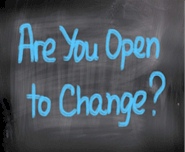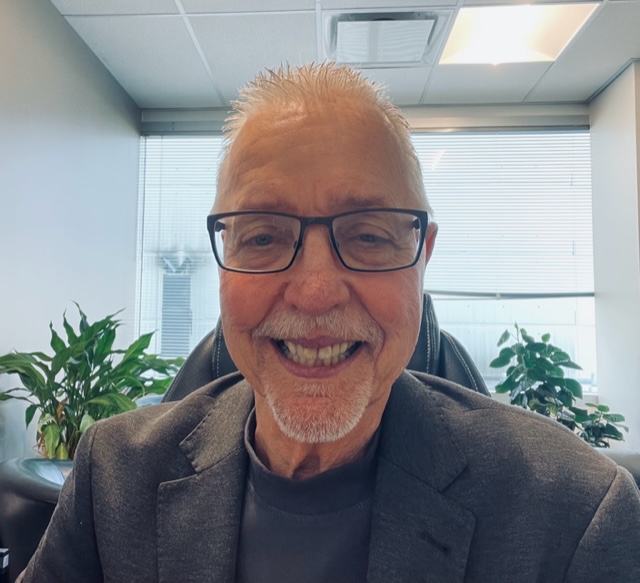Deprecated: Return type of RokCommon_Collection::getIterator() should either be compatible with IteratorAggregate::getIterator(): Traversable, or the #[\ReturnTypeWillChange] attribute should be used to temporarily suppress the notice in
/home/addicti/public_html/libraries/rokcommon/RokCommon/Collection.php on line
40
Deprecated: Return type of RokCommon_Collection::offsetExists($offset) should either be compatible with ArrayAccess::offsetExists(mixed $offset): bool, or the #[\ReturnTypeWillChange] attribute should be used to temporarily suppress the notice in
/home/addicti/public_html/libraries/rokcommon/RokCommon/Collection.php on line
50
Deprecated: Return type of RokCommon_Collection::offsetGet($offset) should either be compatible with ArrayAccess::offsetGet(mixed $offset): mixed, or the #[\ReturnTypeWillChange] attribute should be used to temporarily suppress the notice in
/home/addicti/public_html/libraries/rokcommon/RokCommon/Collection.php on line
69
Deprecated: Return type of RokCommon_Collection::offsetSet($offset, $value) should either be compatible with ArrayAccess::offsetSet(mixed $offset, mixed $value): void, or the #[\ReturnTypeWillChange] attribute should be used to temporarily suppress the notice in
/home/addicti/public_html/libraries/rokcommon/RokCommon/Collection.php on line
59
Deprecated: Return type of RokCommon_Collection::offsetUnset($offset) should either be compatible with ArrayAccess::offsetUnset(mixed $offset): void, or the #[\ReturnTypeWillChange] attribute should be used to temporarily suppress the notice in
/home/addicti/public_html/libraries/rokcommon/RokCommon/Collection.php on line
77
Deprecated: Return type of RokCommon_Collection::count() should either be compatible with Countable::count(): int, or the #[\ReturnTypeWillChange] attribute should be used to temporarily suppress the notice in
/home/addicti/public_html/libraries/rokcommon/RokCommon/Collection.php on line
85
-
Psychotherapy
-
Couples, Family
-
Action Plans
-
Change
-
Addictions Solutions
 Empathic Individual & Family Psychotherapy
Empathic Individual & Family Psychotherapy
What Does a Psychotherapist Do?
(Derived from psychotherapy associations in United Kingdom and North America)
Psychotherapists generally do more in-depth psychological work with individuals on a one-to-one basis, with couples and families, and also with groups of clients. The client is an active participant in the therapies.
At Recovery Centre for Addictions, Trauma and Families we work with individuals, couples, families and groups to help them overcome a range of psychological and emotional issues. We emphasize personal treatment plans and a variety of non-medical-based treatments. We help you:
- address your thought processes, feelings and behaviour;
- understand your inner conflicts; address anxiety, mood disorders and obsessive/compulsive disorders
- address and recover from addiction disorders
- facilitate trauma recovery, including PTSD
- experience healing from grief and Complex Grief
- find new ways to deal with, and alleviate distress
We have a solution oriented focus and approach therapy from a healing perspective.
While our approach is eclectic we do focus exclusively on talk therapy. We use a variety theoretical models and adapt to the specific needs presented. These 'talking therapies' include:
- cognitive behavioural therapies; applied behaviour analysis
- psychoanalytic and psychodynamic therapies;
- humanistic and integrative psychotherapies;
- systemic therapies, particularly a family systems approach;
- narrative and experiential therapies – your story is important!;
- trans-theoretical perspective for addictions recovery
All this is presented with an empathic, client centered style. Our goal is to provide a safe, accepting environment for healing and growth. When specifically asked, we will include a faith based component in your Personal Action Plan. All faiths and cultures are welcome!
Read More
 Couples Therapy
Couples Therapy
Couples and Marriage Therapy is a growing need in our society and culture. The good thing is that couples are more willing to reach out for help as a preventative and restorative measure.
We approach couples therapy from an attachment perspective, which is an emotionally based approach that understands how we have all been shaped, for better or for worse, by our cultural and family experiences.
When infidelity or addiction is present the relationship becomes even more complex. Our goal is to help rebuild relational bridges that have either fallen into disrepair or have been destroyed by difficult circumstances. This requires patience and commitment but restoration and healing is possible!
Family Therapy
“The family remains with us wherever we go!” So says Murray Bowen, founder of Family Systems Theory.
Understanding family as a system is a way of thinking about families. Here are some things that tend to prevail within family systems: (These are not necessarily all positive!)
• The family as a whole is greater than the sum of its parts. Individuals may get lost in the “system”!
• Change in one part of the “system” can lead to change in the whole.
• Family systems become more complex and organized over time and lead to “generational relays”.
• When change is initiated there is pressure to change back to familiar patterns, Systems resist change!
• The symptom (dysfunction) may serve a purpose or be seen as “functional” in some way.
We recognize these realities and work with families and individuals to restore healthy balance within the family system. This often requires a focus on individual healing and growth!
Interventions
At Recovery Centre for Addictions, Trauma and Families, viewing the family as a system gives us a way to think about families, but viewing the family as a story gives us a way to interact with families. Each family has a story to understand.
Here is a definition of a family struggling with an addictive process:
"A Family with an addictive process is one in which the environment or context of daily life becomes dominated by anxieties, tensions, and chronic trauma of active addiction. The substance or the behaviour becomes the central organizing principle of the family system, controlling and dictating core family beliefs and influencing all aspects of behaviour, as well as cognitive and affective development." (Adapted from Brown and Lewis, 1999)
Our approach is to interact with the family in a way that will begin to reverse the negative traumatic effects of active addiction or dysfunction. This includes working with the family as a whole when possible but also working with individuals within the family system. Each individual story is important within the family story.
Read More
 Personalized Action Plans
Personalized Action Plans
Recovery Centre for Addictions, Trauma, & Families exists to provide individual, family and group counselling resources for Addictions Prevention and Recovery, Trauma Recovery, and Marriage and Family Restoration. We are an out-patient facility dependent on client fees for continued operation. We provide a client centered, personal atmosphere in helping individuals and families design an Action Plan that fits their biological, psychological, social and spiritual recovery needs.
Resolving ambivalence in the change process is a key ingredient to moving forward. This is particularly true when addressing addictive behaviour. Commitment is paramount. We help individuals resolve ambivalence.
This plan must be personal. Therefore you, the client must be an active participant in the design of the plan. Options and choices will be discussed, but you will ultimately decide how you proceed!
You will be helped to do a Decisional Balance and take ownership of your plan.
If individuals and families so desire and chose to, we will integrate a specific spiritual and faith component into your Personal Action Plan.
Read More
 Increasing Motivation and Readiness For Change
Increasing Motivation and Readiness For Change
Change is a process that requires movement through stages. But even when individuals acknowledge they need to change it is not automatic. Real change often requires help moving through the change process.
At Recovery Centre for Addictions, Trauma, & Families we use the Trans-Theoretical Stages and Processes of Change to help individuals achieve the change they desire.
Moving through the stages looks like this:
• Pre-contemplation Stage (“I don’t need to change.”)
• Contemplation Stage (“I might change.”)
• Preparation Stage (“I will change.”)
• Action Stage (“I am changing.”)
• Maintenance Stage (“I have changed.”)
• Termination Stage (“I AM changed.”)
Through Motivational Interviewing processes and empathic psycho-dynamic work we will help you move through the Stages of Change to help you achieve your change and growth goals.
At Recovery Centre for Addictions, Trauma and Families we do not offer "miraculous" formulas - we do offer effective processes.
If individuals and families so desire and chose to, we will integrate a specific spiritual and faith component into your Personal Action Plan.
Read More
 Training and Professional Development
Training and Professional Development
Do you want to experience cutting edge professional development? Over the past 15 years Larry Larson has provided professional development and training to organizations and agencies, hundreds of other professionals and hundreds of volunteer workers. These courses are designed for 0n-Sight training and include Personal Development and Team-Building components.
These courses provide addictions training as well as in depth training for practitioners. The following courses are available:
Addiction Recovery Training
Course I
“Addictions Fundamentals: A Fresh Approach and Understanding” (10 Hours)
Course II
“From Addiction Isolation to Freedom: Celebrating Lifestyle Change (10 Hours)
Advanced Learning Training
Course I
“Reconstructing the Guilt or Shame Based Identity” (10 Hours)
Course II
“Stress Management for Front Line Workers” (10 Hours)
Course III
“Understanding Domestic Violence: Anger, Addiction & Apathy Within the Intimate Partner Violence Cycle” (10 Hours)
Read More
 Larry Larson, MA; Bth.
Larry Larson, MA; Bth.









